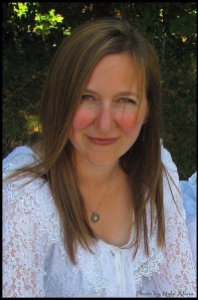 You are reading more online and finding so many fascinating sites that you connect with. They are stimulating your writing and you want to be able to manage them more efficiently and to be able to find them again later.
You are reading more online and finding so many fascinating sites that you connect with. They are stimulating your writing and you want to be able to manage them more efficiently and to be able to find them again later.
But how do you keep up with reading all the blogs that connect with your interests? How do you find what is of value to you? How do you arrange it so it’s manageable? How do you maximise your learning from the huge volume of material? How do you not miss out on the key people whose work you love amidst the volume coming at you?
In short, what RSS/syndicated reader will work best for you?
I’m a reader by background, a reading teacher by professional background and now fully engaged in the rich world of online reading. When I started reading online, all was fine. I clicked on the RSS feed symbol in my browser and subscribed. This worked while I was reading a few blogs and could manage them through my favourites. Then I was reading more and more. I tried a few other RSS readers but I couldn’t quite get what I wanted and in the end, I just became overwhelmed and couldn’t keep up with it all. I recently went back to only reading what I subscribed to through email; I was missing out on so much and I just wasn’t very organised.
There must be a way, I thought, and went back to Google recently for some more research. That was when I found Feedly.
It seemed to be exactly what I wanted. I was able to quickly download feedly and get started. The positives? So many:
- It looks like a personalised magazine when you open it, so it’s inviting and easy to move around.
- You can group your feeds by category.
- There are different ways to look at your feeds: by category, latest posts, posts saved for later.
- For readability of posts, it’s brilliant: you get a preview; you can click from there to read in full and also easily skip over to the web-page itself.
- Sharing is so easy: there are buttons at the top so you can immediately email, tweet or bookmark so you don’t have to go to another site.
- There are suggestions of other sites that might be of interest and mostly, they are of interest.
- I don’t feel overwhelmed by what I haven’t read; I just read what looks interesting.
- It’s very intuitive; it took me no time to work out what to do and how to manage it.
- It also has mobile options too.
The negatives?
I haven’t found any yet!
My blog reading and the organisation of my reading is back on track and I feel super-organised. I am reading my favourite bloggers again; I’m finding new blogs and adding them and I’m tweeting and bookmarking via delicious very easily. It’s so much easier to use and friendlier than some of the other reader options I have explored.
So, many thanks to Feedly creators that enabled me to so quickly sort out this vexed issue of managing my online reading.
There are no affiliate links for Feedly or anything else at this time; just enthusiasm from a satisfied Feedly user.
Do you have any comments or tips on how you manage your online reading?
Image by fczuardi from flickr and used under a Creative Commons license with thanks
![]()







